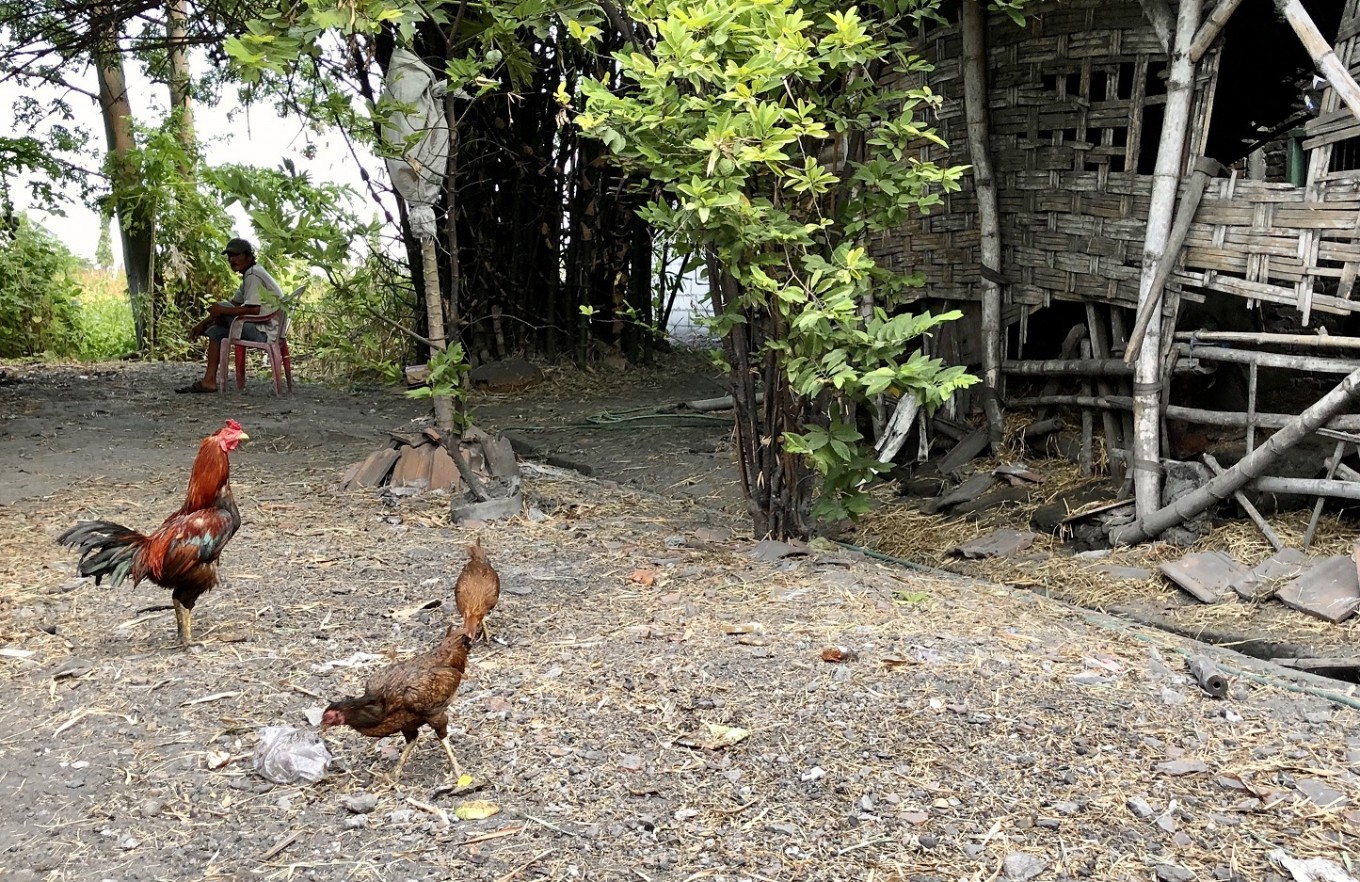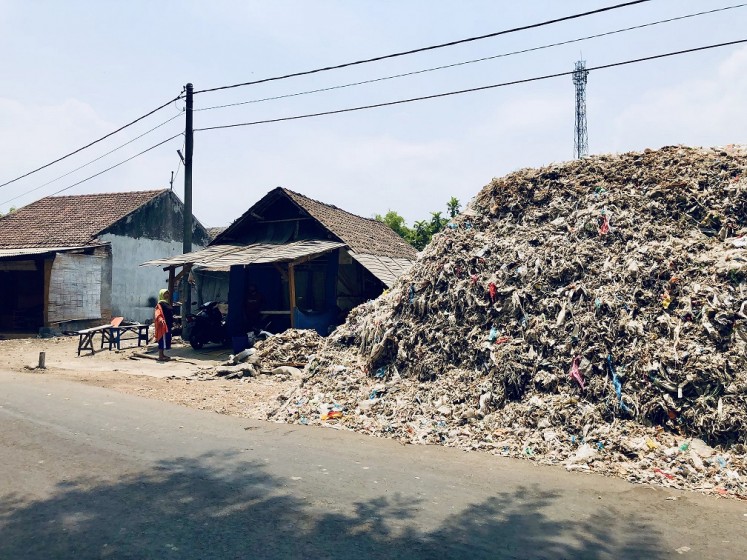Popular Reads
Top Results
Can't find what you're looking for?
View all search resultsPopular Reads
Top Results
Can't find what you're looking for?
View all search resultsPlastic or egg? Imported waste contaminates East Java’s food chain: Report
A recent report shows that plastic waste, much of which was imported from the West, has contaminated eggs produced by free-range chickens in two villages in East Java.Bangun village and Tropodo village have been inundated by imported plastics and other hazardous waste since last year when China closed its doors to the importation of 24 types of waste material.
Change text size
Gift Premium Articles
to Anyone
A
recent report shows that plastic waste, much of which was imported from the West, has contaminated eggs produced by free-range chickens in two villages in East Java.
Bangun village and Tropodo village have been inundated by imported plastics and other hazardous waste since last year when China closed its doors to the importation of 24 types of waste material.
Bangun villagers had burned mounds of plastic waste that had piled up around their houses. Meanwhile, residents of Tropodo had been using plastic waste as a fuel source in local tofu factories.
Free-range egg samples collected near a tofu factory in Tropodo contains the second-highest level of dioxins in eggs from Asia, according to a recent report entitled “Plastic Waste Poisons Indonesia’s Food Chain".
The report was launched by several environmental groups, including the International Pollutants Elimination Network (IPEN), the Indonesia-based Nexus3 and the Czech Republic-based Arnika Association, on Thursday.
“An adult eating just one egg from a free-range chicken foraging in the vicinity of the tofu factory in Tropodo would exceed the European Food Safety Authority (EFSA) tolerable daily intake for chlorinated dioxins by 70-fold,” the report says.
The sampled Tropodo eggs are only less hazardous than dioxin-contaminated eggs collected in an area in Vietnam contaminated by the Agent Orange chemical weapon.
Dioxins are known for their link to serious illnesses ranging from endometriosis to cancer.
Where's home?: Bangun village in East Java has been inundated by plastic waste imported from Western countries and elsewhere.countries and elsewhere. (Nexus3/-)Aside from dioxins, the groups also found a dangerous concentration of other highly toxic chemicals in the sampled eggs.
“Eggs collected in the communities were found to contain highly hazardous banned chemicals, including dioxins, flame retardants and the toxic [...] perfluorooctane sulfonate or PFOS,” the groups wrote in the report.
The report also mentions that the United Nations wanted to eliminate or restrict the production and use of such organic pollutants under the Stockholm Convention.
IPEN advisor Lee Bell said the report had become a call for authorities to ban plastic waste combustion, address environmental contamination and control hazardous and plastic waste imports.
“It’s clear from the study that plastic pollution imperils human and environmental health not only from the visible deluge of plastic trash, but from the invisible chemical contaminants in plastics and those created when burning plastics,” Bell said in a statement on Thursday.
Meanwhile, Yuyun Ismawati of Nexus3 asserted that the relevant governmental authorities should stop the exportation of plastic waste from their respective jurisdictions once and for all. “The Global North [countries of the northern hemisphere] needs to stop treating the Global South as its waste bin.”
Responding to the report, the Environment and Forestry Ministry’s director general of waste and hazardous and toxic material management, Rosa Vivien Ratnawati, said on Thursday that before making any official statement, her office “will study the report first”.










